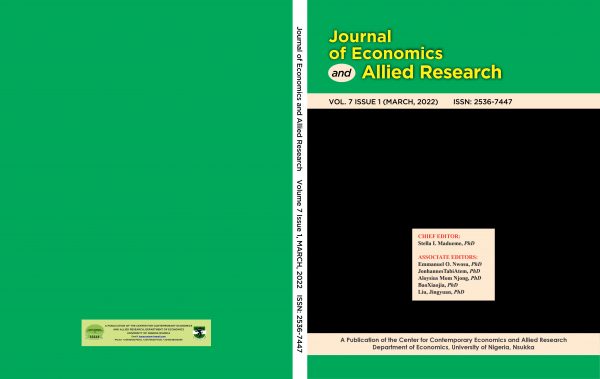
THE IMPACT OF PUBLIC HEALTH EXPENDITURE ON HEALTH INDICATORS IN NIGERIA
Taofik M. Ibrahim and Ditep Nantap Rejoice ——————————————-(25-34)
ABSTRACT
This study investigates the relationship between public health expenditure and health indicators
in Nigeria. The study utilized the Error Correction Mechanism (ECM) framework to capture
the plausible short-run effects of public health expenditure on health indicators (proxy by life
expectancy and under-5 mortality rate) in Nigeria from 1985 to 2019. The results revealed a
long-run relationship between health indicators, health expenditure, gross domestic product
(GDP) per capita, carbon dioxide emission, literacy level, and urban population. The results
also indicate that GDP per capita and literacy level positively affect health indicators while
urban population and carbon dioxide emissions impacted negatively on health indicators.
Furthermore, the results revealed that the various speeds to adjustment are significant and low.
The study concludes that expenditure on healthcare is vital for improving the quality of life in
Nigeria and recommends that the government should increase health expenditure, control overcrowding
in urban centers, reduce inequality, and promote the use of green energy.
Keywords: Public health expenditure, health indicators, Co-integration, error correction
mechanism, Nigeria
JEL Classification: H51, I12, C32
Click on the link below to download the paper
Online Version – JEAR Volume 7, Issue 1 – -March 2022_compressed




